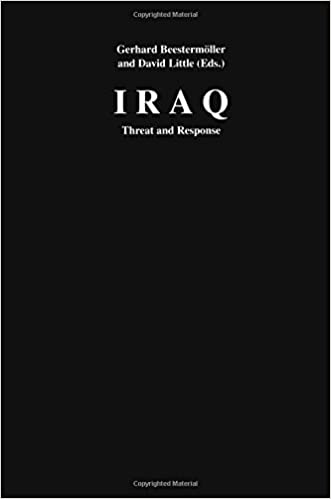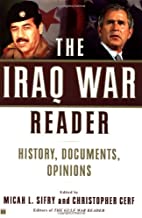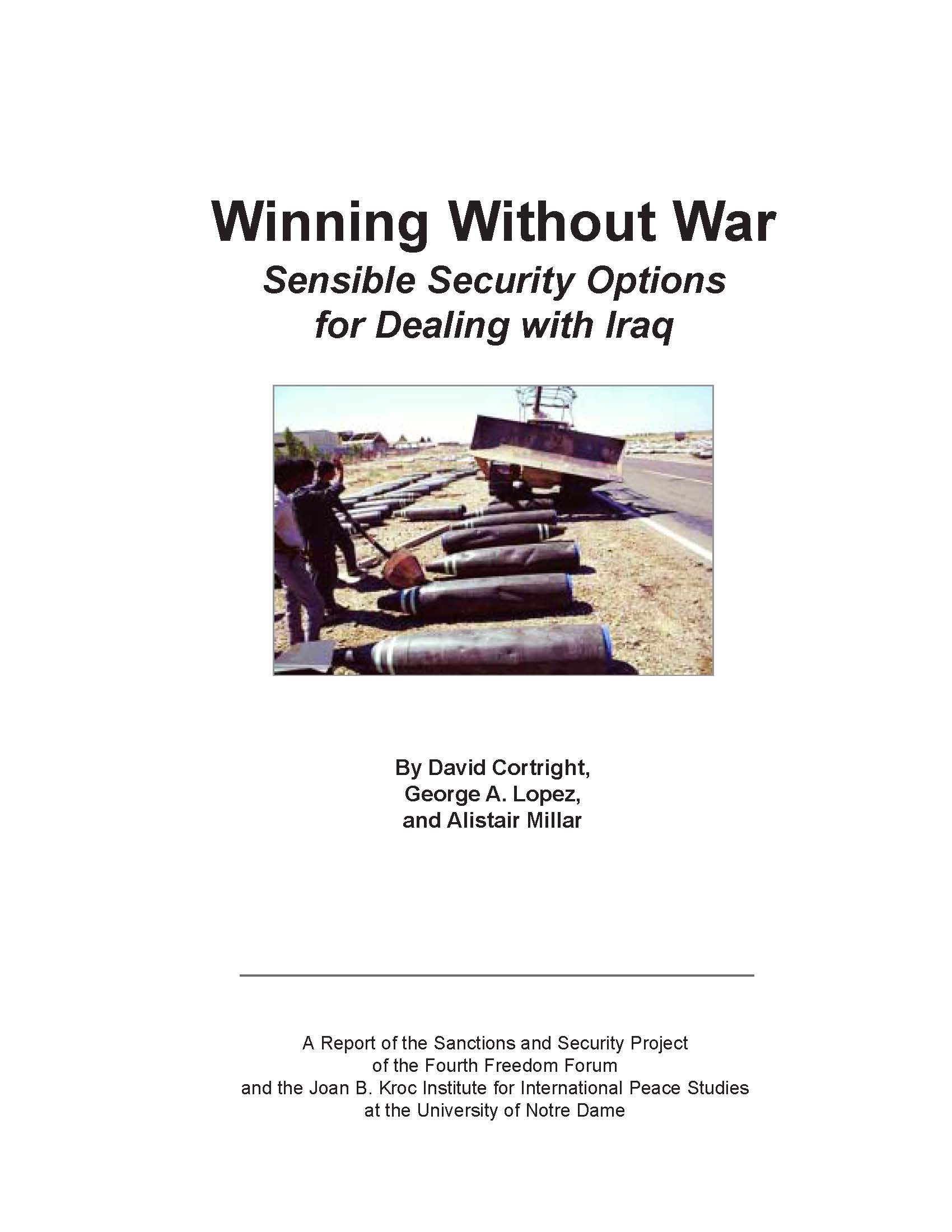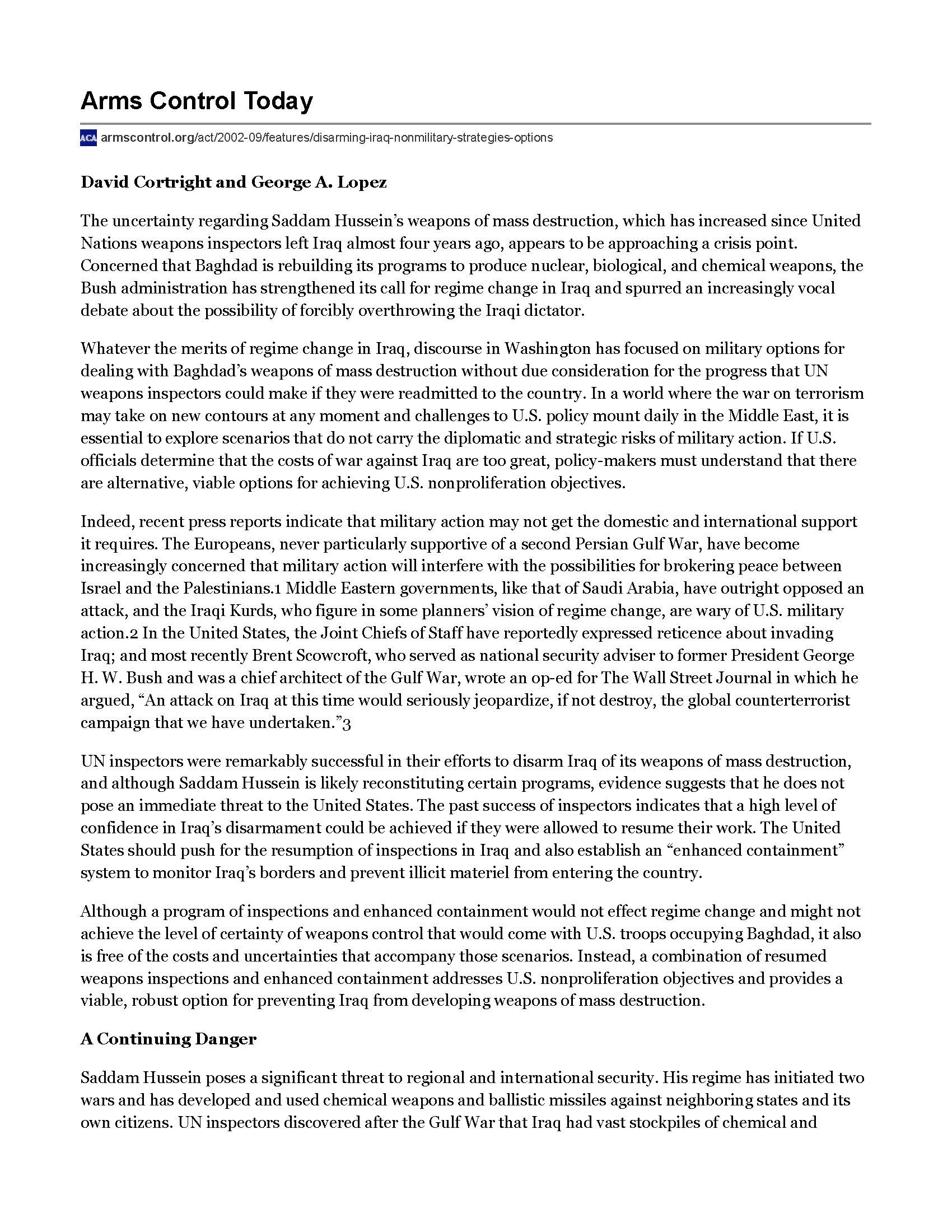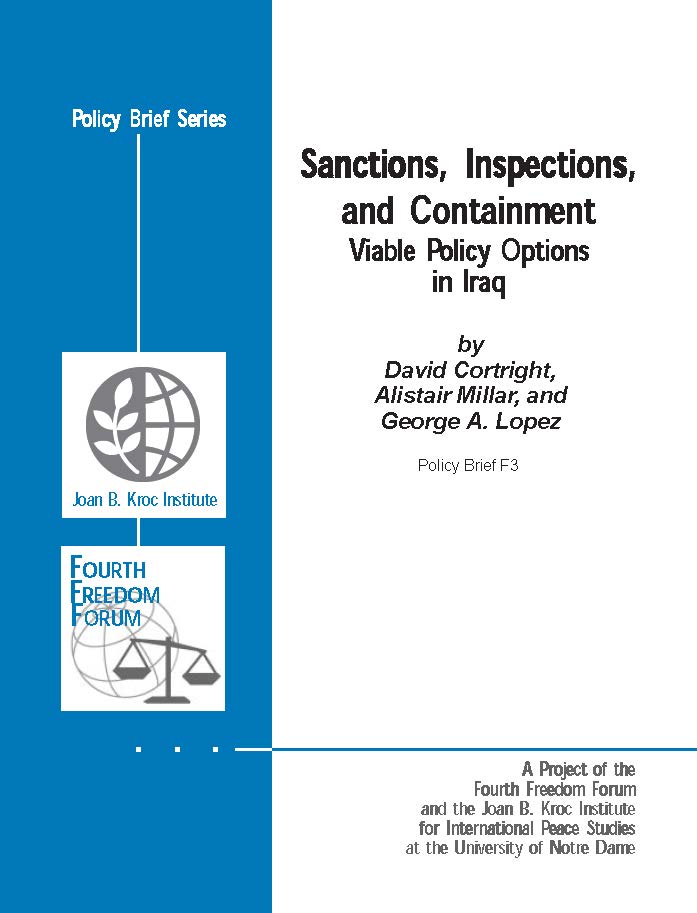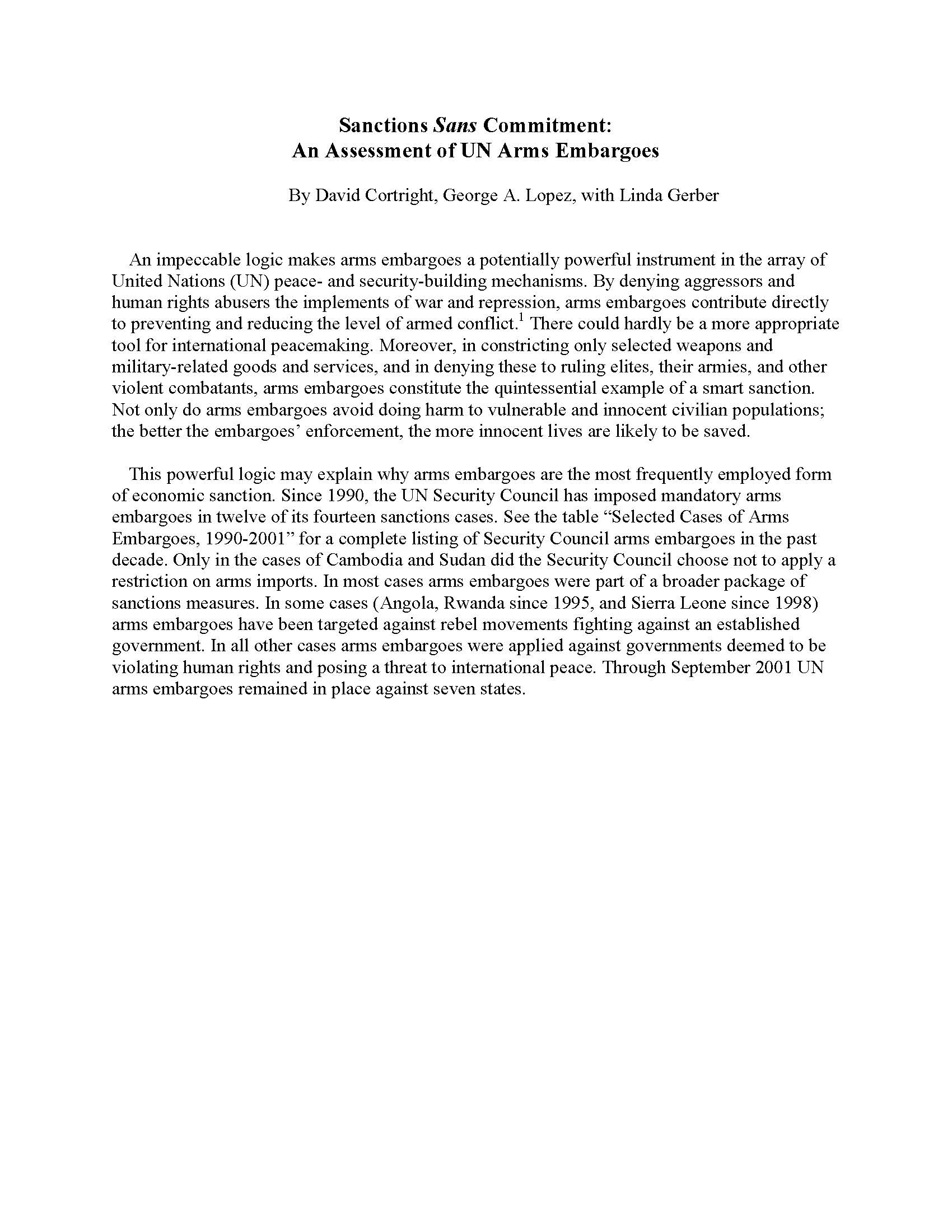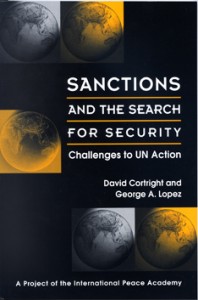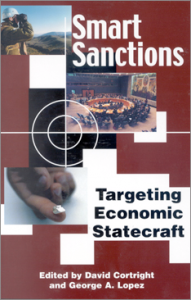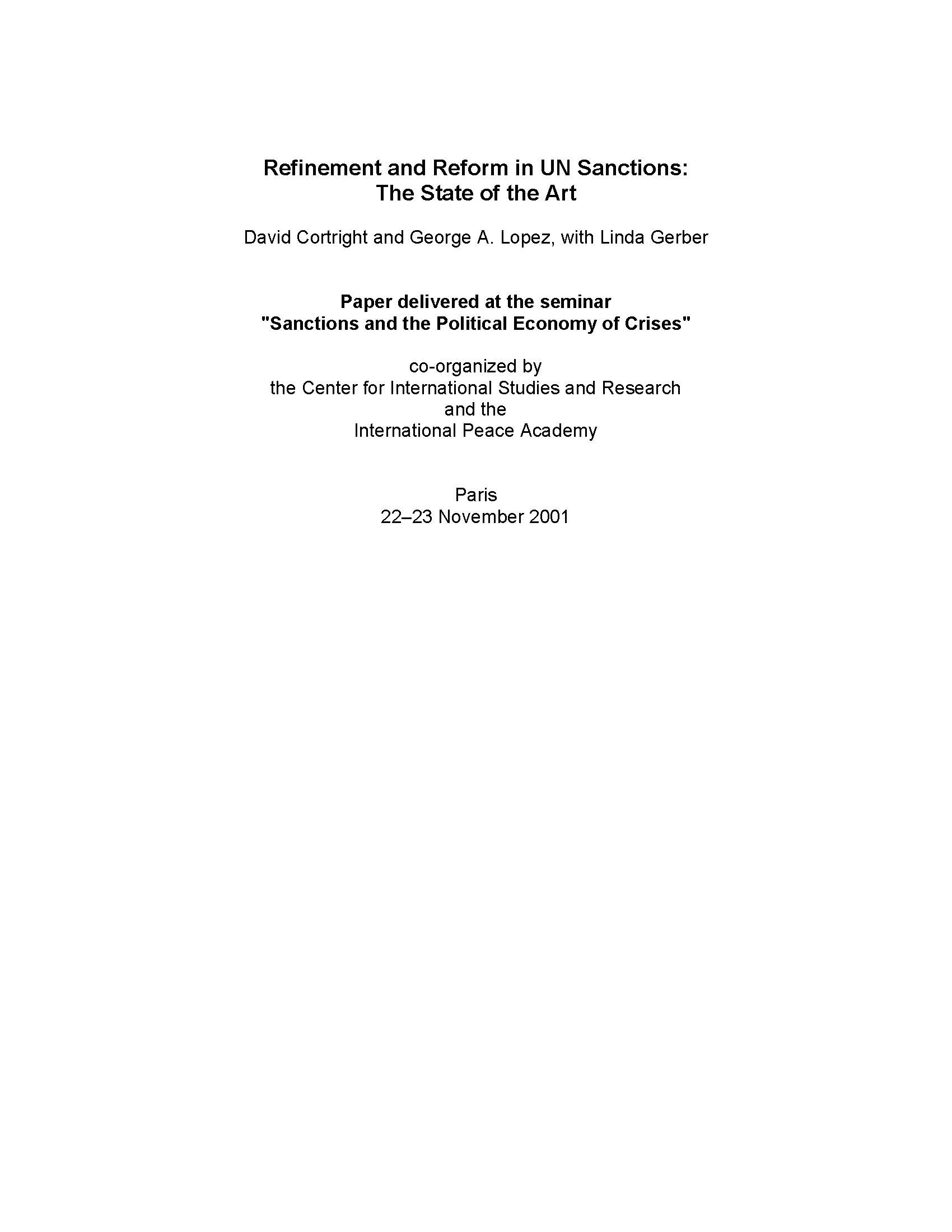Report — November 2001
The Security Council has significantly improved UN sanctions policy in recent years. Most notable have been steps toward sharpening sanctions design, applying more targeted measures called ‘smart sanctions,’ strengthening monitoring and enforcement, and prioritizing humanitarian concerns. Yet these advances have been compromised by competing political agendas among the five permanent members of the Security Council, inadequate compliance by member states, and a lack of institutionalized UN capacity for monitoring and enforcement.
This report discusses these countervailing trends in detail and sketches some ways in the near term in which the Security Council could improve the effectiveness of sanctions.
